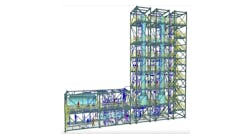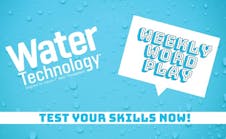It’s interesting and a bit alarming to me how often the topic of fear based selling comes up in our industry. When I am engaged in conversation with attendees at a state or local Water Quality Association (WQA) meeting, the fear method is pretty much unanimously condemned. This, of course, makes sense as members of the WQA have committed to follow a strict code of ethics in their business practices. Yet, nearly every person I speak with knows of someone, usually one of their competitors, that they believe regularly uses scare tactics as part of their business strategy.
Just as I begin to wonder whether or not some of it is imagined or misunderstood, I read my Google News Alerts report and see yet another water treatment dealer, or dealers, that are the focus of some hidden camera operation or the named defendant in an attorney general’s investigation.
In many of the news stories, the owners of the company testify that they had no idea their salespeople were going into the home and saying the things they were saying. Understanding that owners are often wearing a bunch of different hats and do not have the time to accompany every salesperson into every home, knowing what the people who are representing your company are saying to your customers should be among the highest priorities. One bad hidden camera investigation could ruin a business, not to mention the fact that using scare tactics is unethical and does not serve anyone or our industry in the long run.
As an industry sales trainer, one of my biggest fears is of having someone I have trained show up on Dateline or 20/20 as one of the, “you’ll never believe what this guy said,” people. Obviously there is no guarantee that this will never happen, but I have learned to take as many steps as possible to protect my business, my customers and my industry.
Hire professionals
A sales professional, (as opposed to the typical salesperson), is less likely to have to resort to misleading scripts and techniques to sell. They will be more willing to educate themselves and will understand that sales should be about serving the customer with honesty and integrity. They will view their role as long term and will be willing to invest the effort into building relationships with a foundation of trust and expertise.
If the customer has a question that they do not know the answer to, they will not make up an answer, but rather seek out the information so they can educate themselves as well as the customer. A sales professional will consistently self-evaluate to make sure the information they are giving the customer is accurate and honest.
Encourage education
Many manufactures or dealers have a script that they teach the salespeople and they discourage the salesperson from straying from this script. I am in support of this training technique, but there will be occasions when customers demand more information or a deeper explanation than the typical script provides.
This is where many salespeople get into trouble. Some salespeople will fabricate an answer to a question. I choose to believe that this fabrication is not usually done with malicious intent, but rather a misunderstanding of the water treatment process or a desire to maintain credibility with the customer.
Regardless of the intent, serious damage can be done if misinformation is provided. Time should be dedicated each week to studying the water treatment industry.
WQA’s Certified Water Specialist or Certified Installer courses are an excellent place to start, but it doesn’t have to begin there. It’s amazing to me how many salespeople have not even read the owner’s manual of the equipment they are selling. For that matter, it’s amazing to me how few installers have read the owner’s manuals of the equipment they are installing and servicing.
It may be a good idea to understand the features of the equipment being offered. This will allow a sales professional to offer a solution to a customer’s needs that are based on the quality of a product as well as the service and professionalism the customer will receive.
Become a resource
The challenge many run into is the fact that we have to balance educating a customer about legitimate water concerns, while not coming across as trying to scare them. What I often suggest is that sales professionals focus on the aesthetics of the water (tastes good, looks good, smells good), but are able to provide a customer with objective resources that will help educate them on issues like chlorine byproducts, lead, nitrates, arsenic, etc.
There are areas where some of these toxic substances are present in the water and not discussing them is a disservice to the customer. However, the sales professional should discuss these issues with the customer as objectively as possible while encouraging the customer to independently verify any water analysis results.
Video and audio record presentations
Before an MV Pro — a sales professional that our company has hired or trained for a water treatment dealer — is allowed to make an unsupervised in-home presentation, we video record their presentation at a mock appointment. In doing this, we are able to sit down and go through the presentation with the new professional to help them with phrasing and accuracy.
We recommend a new recording be done every six months for all sales professionals doing unsupervised presentations. This not only keeps the presentation accurate and honest, but it also serves as an excellent accountability and educational tool.
In addition to the video recording, we strongly recommend that the sales professional periodically carry a digital recorder into the house and record audio of a presentation. I have personally recorded at least a hundred of my own presentations and when I ask the customer if they are comfortable with my recording the presentation for my own self-evaluation, they are not only comfortable, I think they are also impressed.
Salespeople should be encouraged and, in some cases, required to record their presentation and a manager or owner should take the time to review the audio. This is not an uncommon practice. Many businesses record telephone calls for training purposes. When a salesperson is holding your business in his hands, it makes sense to verify that he is representing your company the way you feel it should be represented regardless of intent.
Abide by the WQA Code of Ethics
Regardless of whether or not you are a WQA member or WQA certified, abiding by the WQA Code of Ethics is excellent policy. However, being able to point to the Code of Ethics part of certification is one way sales professionals set themselves apart from non-certified competitors.
Our industry is far too important globally to allow a few individuals with unscrupulous business practices to dictate the way the industry is perceived. Unfortunately, it takes far more ethical sales professionals over a long period of time to undo the damage of one or two unscrupulous salespeople. A policy of presenting without fear is one that should begin within our own organizations.
To review WQA's Code of Ethics, click here.
Kelly R. Thompson, CWS VI, is president of Moti-Vitality LLC. For more information and ideas of how you can hold your team accountable for the way they represent your organization and our industry, please visit www.moti-vitality.com.


